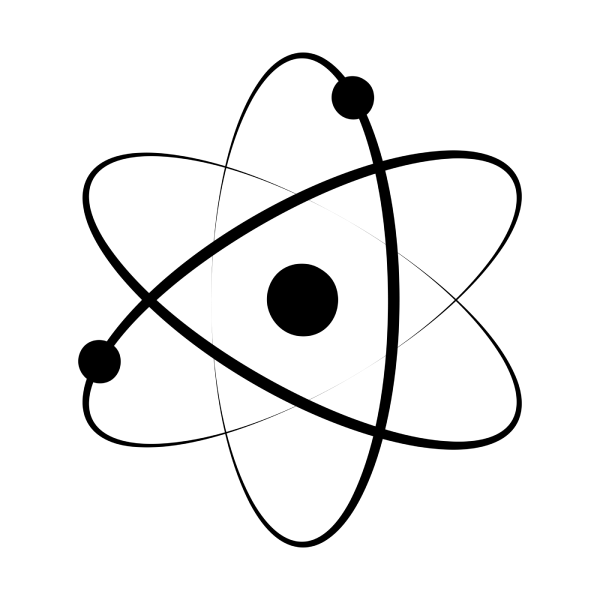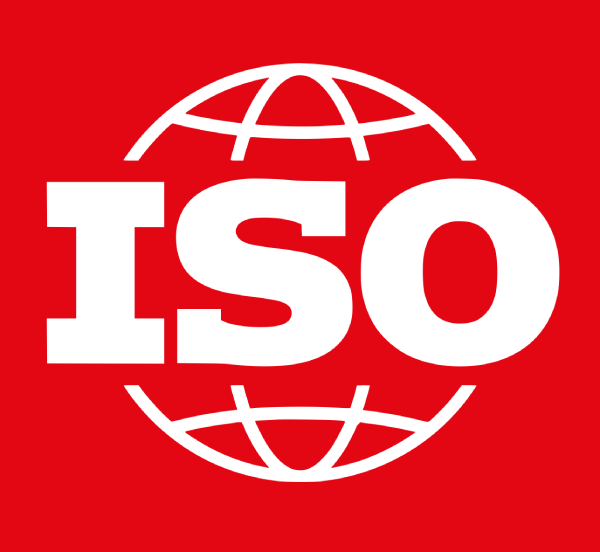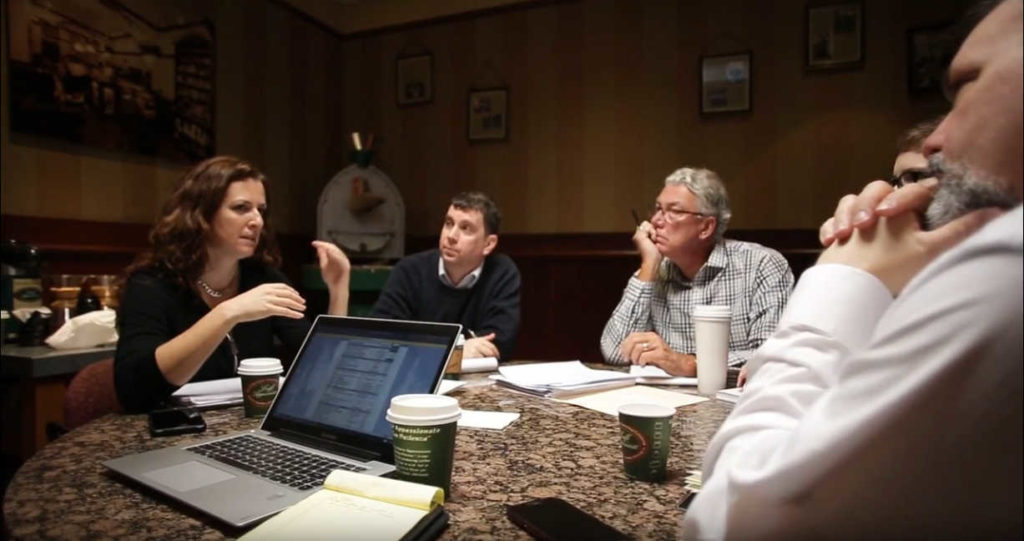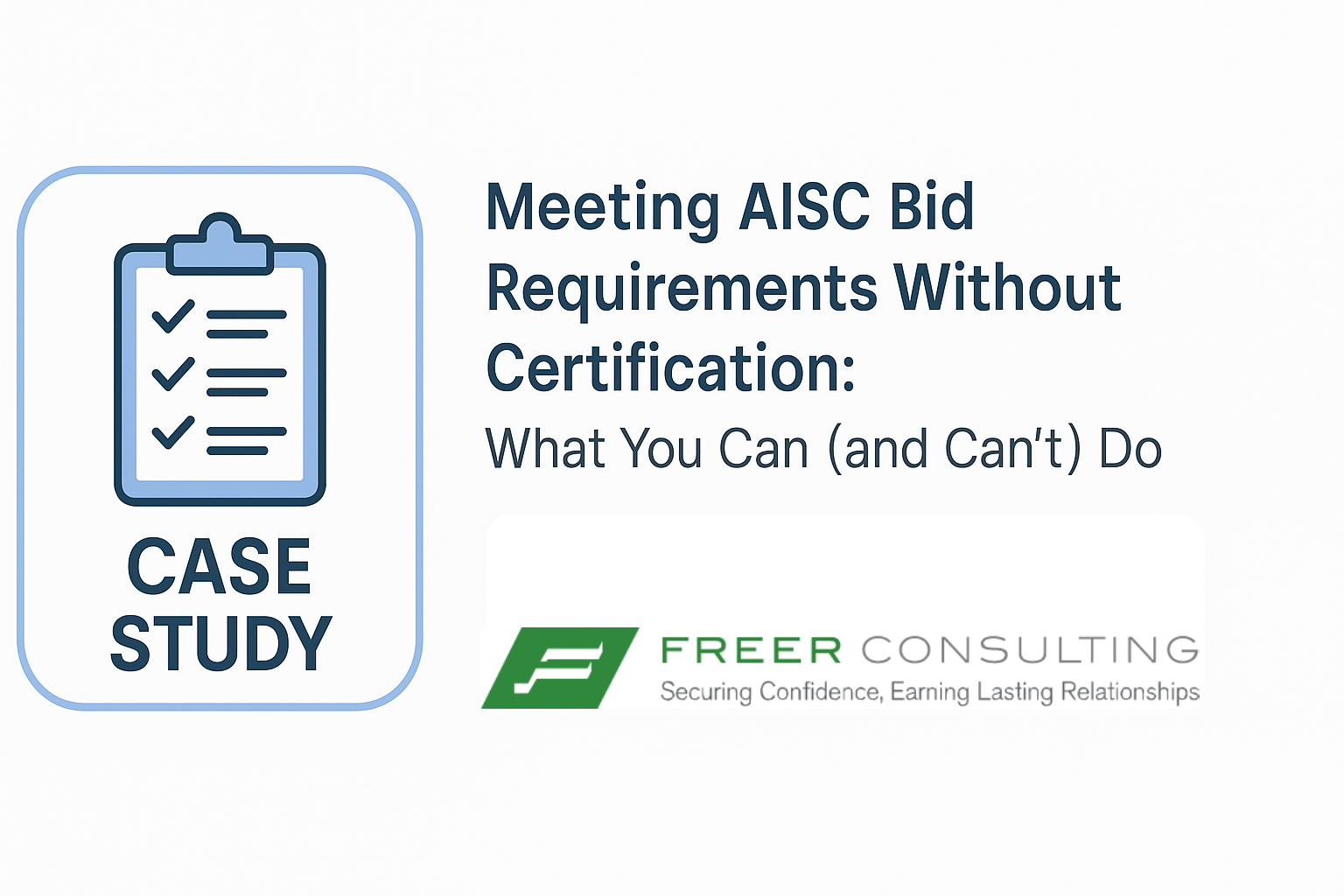Nuclear Quality Assurance Consulting
For manufacturers and technical service providers evaluating the nuclear supply chain.
- Documentation, Training, and Ongoing Support
- Nuclear QA Consulting for Technically Capable Organizations
If your organization is evaluating nuclear supply chain entry, the first step is a realistic assessment of fit and readiness.
We offer an initial consultation to discuss your products or services, target nuclear applications, current quality system, and strategic objectives. From this conversation, we can outline the likely qualification path, identify major gaps, and provide a realistic picture of the effort involved.
Get Started

A Different Regulatory Environment
If your organization is exploring nuclear qualification, you likely already operate under a rigorous quality management system-whether ISO 9001, AS9100, API Q1, or ASME code compliance. You understand quality systems. What you need to understand is how nuclear is different.
The U.S. nuclear industry operates under direct regulatory oversight by the Nuclear Regulatory Commission. Unlike most industrial standards where certification is a market differentiator, nuclear quality assurance is a regulatory obligation tied to public safety. The framework-10 CFR 50 Appendix B, 10 CFR Part 21, and the ASME NQA-1 standard-creates requirements that go beyond what you’ll find in other industries:
Safety significance classification determines which requirements apply to your products. Safety-related items demand full NQA-1 program compliance and are subject to NRC oversight. The distinction between safety-related and commercial-grade items shapes your entire QA approach.
10 CFR Part 21 reporting obligations apply to anyone supplying safety-related components. If your organization identifies a defect or non-conformance that could create a substantial safety hazard, you have a legal obligation to evaluate and potentially report it to the NRC. This isn’t a customer requirement-it’s federal regulation with real consequences.
Traceability requirements in nuclear exceed what most industries demand. Material certifications, weld records, inspection documentation, and process controls must create an unbroken chain from raw material to installed component, maintained for the life of the plant.
Customer audits are substantive. Utility procurement organizations and NUPIC auditors evaluate your program in depth. They’re not checking boxes-they’re verifying that your organization can deliver safety-related items with the reliability nuclear operations demand.
Freer Consulting helps technically capable organizations navigate this regulatory environment and build QA programs that satisfy both the requirements and the intent behind them.
What We Provide
Program Development Built on Your Foundation
Your existing QMS represents years of investment. We assess what you have, identify nuclear-specific gaps, and build an NQA-1 or ISO 19443 compliant program that integrates with your current system architecture - not a parallel structure that doubles your burden.
Sustained Support for an Evolving Landscape
Nuclear qualification isn't a one-time achievement. Standards update, customer requirements shift, and NRC expectations evolve. We remain available for ongoing consultation as your nuclear business matures and your program requires maintenance and adaptation.
Training for Technical Personnel
We train engineers, production staff, and procurement personnel in the nuclear requirements that apply to their day-to-day work. The focus is practical and role-specific - so your team not only knows the expectations, but can apply them correctly in real operations.
What Nuclear Qualification Actually Requires
Organizations entering the nuclear supply chain typically pursue one of several paths, depending on their products, target customers, and risk tolerance:
Full NQA-1 Program Implementation
For suppliers of safety-related components, a quality assurance program compliant with ASME NQA-1 and 10 CFR 50 Appendix B is the standard expectation. This means:
- A quality manual and procedures addressing all 18 NQA-1 requirements
- Qualified personnel with defined responsibilities and documented training
- Supplier qualification and procurement controls extending into your own supply chain
- Inspection, testing, and process controls appropriate to nuclear safety significance
- Nonconformance management and corrective action systems with root cause rigor
- A records system that maintains retrievable documentation for decades
- Internal audit programs and management review processes
- Part 21 evaluation procedures integrated into your nonconformance process
If you currently hold API Q1 certification, you’ll recognize the structure-NQA-1’s 18 requirements parallel the 18 criteria of Appendix B, much as API Q1 builds on ISO 9001. But the implementation expectations, documentation depth, and regulatory stakes are higher.
ISO 19443 Certification
For organizations targeting international nuclear markets or supplying items important to nuclear safety (ITNS) outside the U.S. safety-related classification, ISO 19443 offers an alternative framework. Built on ISO 9001, it adds nuclear-specific requirements including:
- Nuclear safety culture expectations embedded in leadership and organizational requirements
- Graded application of quality requirements based on safety significance
- Specific controls for counterfeit, fraudulent, and suspect items (CFSI)
- Enhanced traceability and configuration management
ISO 19443 is increasingly required for European nuclear projects and is gaining traction globally as the civil nuclear industry seeks supply chain standardization.
Commercial Grade Dedication
Not every item entering a nuclear plant requires a full NQA-1 pedigree. Commercial grade dedication (CGD) provides a pathway for items manufactured under commercial quality programs to be accepted for safety-related applications. The dedication process-performed by the purchaser or a qualified dedicating entity-involves technical evaluation, critical characteristic identification, and verification activities that provide reasonable assurance the item will perform its safety function.
For some suppliers, supporting customer CGD activities may be more practical than implementing a full nuclear QA program. Understanding where your products fit in this landscape is part of the strategic evaluation.
Our Role in Your Nuclear Qualification
Freer Consulting works with organizations that have made a strategic decision to pursue nuclear markets and need experienced guidance through the qualification process.
Regulatory and Standards Interpretation We translate NQA-1, Appendix B, and ISO 19443 requirements into practical implementation for your specific operations. You’ll understand not just what the words say, but what auditors expect and how the requirements apply to your products and processes.
Gap Assessment Against Your Current System We evaluate your existing QMS-whether ISO 9001, AS9100, API Q1, or another framework-and identify specifically what must change or be added to meet nuclear requirements. No starting from scratch; we build on what you have.
Documentation Development We develop nuclear QA documentation that integrates with your existing system architecture. Quality manuals, procedures, and work instructions are tailored to your operations, not generic templates that create compliance burden without adding value.
Part 21 Program Implementation We help you establish the evaluation and reporting procedures required by 10 CFR Part 21, including the identification of safety-related items, defect evaluation criteria, and reporting protocols.
Training for Technical Personnel Your engineers, quality staff, and production personnel need to understand nuclear requirements in the context of their work. We provide training that goes beyond awareness to practical application.
Audit Preparation and Support Whether you’re preparing for NUPIC evaluation, customer qualification audits, or NRC vendor inspection, we help you understand what to expect and ensure your program is ready.
Ongoing Technical Support Nuclear qualification isn’t a one-time event. Standards evolve, customer requirements change, and your operations develop. We’re available for ongoing consultation as your nuclear business matures.

Who We Work With
Our nuclear QA consulting serves organizations that share certain characteristics:
Established quality system foundation. You operate under a recognized QMS-ISO 9001, AS9100, API Q1, ASME code-and have the organizational discipline that implies.
Technical capability relevant to nuclear applications. You manufacture precision components, provide testing or calibration services, perform specialized fabrication, or deliver technical services that nuclear facilities require.
Strategic commitment from leadership. Nuclear qualification requires sustained investment and organizational focus. This decision has been made at the appropriate level, not delegated to quality department initiative.
Realistic expectations. You understand this is a multi-year journey with significant investment, not a quick certification to check a box.
If this describes your organization, we should talk.
Adjacent Industry Experience
Many organizations entering nuclear come from industries with their own rigorous quality requirements:
Oil and Gas / API Q1: The structure of API Q1-risk-based thinking, product realization controls, supplier management-parallels nuclear requirements. Your experience with API audits and documentation prepares you for nuclear rigor, though the regulatory overlay and safety significance concepts will be new.
Aerospace / AS9100: Aerospace suppliers understand configuration management, traceability, and customer flowdown requirements. The transition to nuclear involves learning a different regulatory framework and adapting to utility procurement culture rather than aerospace prime contractors.
ASME Code Work: If you hold ASME certifications for pressure equipment, you understand code compliance, authorized inspection, and quality system requirements. Nuclear adds the NQA-1 overlay and NRC regulatory dimension.
Defense / MIL-SPEC: Defense suppliers are accustomed to government oversight and rigorous specification compliance. Nuclear quality systems share some cultural similarities, though the specific requirements differ.
Freer Consulting has experience helping organizations from each of these backgrounds translate their existing capabilities into nuclear qualification.
Getting Started
If your organization is evaluating nuclear supply chain entry, the first step is a realistic assessment of fit and readiness.
We offer an initial consultation to discuss your products or services, target nuclear applications, current quality system, and strategic objectives. From this conversation, we can outline the likely qualification path, identify major gaps, and provide a realistic picture of the effort involved.
This isn’t a sales pitch-it’s a technical discussion to help you make an informed decision about whether nuclear qualification makes sense for your organization.
Contact us: Phone: (206) 679-2357 Email: [email protected]
Freer Consulting Co. provides quality management system consulting for manufacturers and technical service providers navigating complex regulatory and certification requirements. Our practice includes ISO standards, API Spec Q1, AISC certification, and nuclear quality assurance.
Complete, Customized Support

Management Solutions
We deliver customized management solutions to address the needs of any industry. We leverage market expertise and technological innovation to answer the needs of our clients in a complex international environment.

Documents and Accountability
Freer Consulting provides clients with a variety of communications tools to share their objectives, implementation strategies, and final results. We work with businesses to develop project goals, performance metrics, expectations, and more.

Education and Training
In cooperation with our project collaborator, Sustainable Media Partners, Freer Consulting produces a variety of education and training materials in a variety of formats, including print curricula, tip sheets, and instructional manuals.
Trusted By Industry Leaders



About Freer Consulting

Freer Consulting Co. has over 20 years of experience in a wide range of business consulting fields. Our well-rounded, experienced team has a proven record of meeting business needs and achieving results on-time and within budget. We work with businesses across the United States and internationally, providing both on-site and remote consultation. In our industry, Freer pioneered the Global Virtual Playbook, which allows us to provide expert remote consultation to our clients across the globe.
We establish long-term, productive relationships with our clients. We can grow with your company and provide services as you need them. Our experience means we get it right for your company the first time. Our standards ensure your company realizes the benefits of getting it right, again and again.
We Have Expertise In
TALK WITH OUR TEAM
(206) 679-2357
Freer Pinpoint Blog
Preparing for AI Adoption Is Like Preparing for Certification
Freer Team Business Services‚ Industrial Standards Certification‚ ISO Standards ComplianceArtificial intelligence is receiving intense attention, and many organizations are feeling pressure to begin using it. Vendors, consultants, and media coverage often present AI as a near-term solution to a wide range of operational problems. At the same time, many organizations are struggling to translate that attention into consistent, practical results. The challenge is not […]
Meeting AISC Bid Requirements Without Certification: What You Can (and Can’t) Do
Freer Team AISC Certification‚ Case Study‚ Industrial Standards CertificationWhat happens when a bid hits your desk that it requires AISC certification but your company isn’t certified yet? This is a fairly common scenario. Certification requirements often show up in bidding documents for structural steel or bridge projects, even when the timeline to achieve certification realistically exceeds the bid window. So what can you […]
Overcoming API Q1 Implementation Obstacles for SMEs and Small Businesses in 2025
Freer Team API Spec Q1‚ Industrial Standards CertificationFor many small and mid-sized businesses, API Spec Q1 certification feels like it’s designed for large manufacturers with dedicated compliance teams. The paperwork, the audits, the cost—it can seem overwhelming when you already wear multiple hats just to keep daily operations running. The good news: more and more small businesses are successfully achieving API Q1 […]



